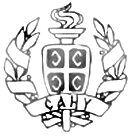Problems in studying Serbian music between the two world wars
Problemi proučavanja srpske muzike između dva svetska rata
| dc.creator | Tomašević, Katarina | |
| dc.date.accessioned | 2018-05-07T11:12:27Z | |
| dc.date.available | 2018-05-07T11:12:27Z | |
| dc.date.issued | 2001 | |
| dc.identifier.issn | 1450-9814 (print) | |
| dc.identifier.uri | https://dais.sanu.ac.rs/123456789/2499 | |
| dc.description.abstract | The introductory section of this article comprises a condensed retrospection of previous researches in Serbian music between the two world wars. Basic problems faced by contemporary Serbian musicology have been pointed out. These include: incomplete bibliography, absence of monographic publications general historic surveys, and systematic typological studies. Such a situation resulted from a series of organizational difficulties that, from the very beginnings of our musicology, accompanied the researchers' work. A section of the article pays attention to current problems of scientific personnel. The state of material is also one of the essential problems. Unfortunately, the situation regarding finding, recording and expert and bibliographical treatment as well as publishing various material is still an important obstacle for a systematic scientific treatment, historical surveys analytical and critical evaluation of general tendencies of the period. Composing a single data bank of institutions and private collections where material is conserved, as well as publishing scores and sound archives, are the first steps to be made in our musicology towards modern methodological views on the period of Serbian music between the two world wars. In the section Thematic Fields the author emphasizes the importance of contextual studies of the musical heritage as a part of Serbian and European musical and cultural life. It has been noticed that musicological views tend to focus on Belgrade with very little work dedicated to dominant music trends and phenomena in other parts of Serbia. Also discussed are problems contained in the notion of Serbian music between two wars. It has been pointed out that certain problems arise when in interpreting evolutionary art trends we try to strictly connect them with time limits provided by historical events. In the 20th century, Serbian history has recorded at least four wars, so it has been proposed to adopt in the future musicological practice, the expression 'between two world wars' instead of the term 'between the wars'. When examining the problem of defining Serbian music in national terms, we find that the previous musicological practice was correct in regarding non-Serbian composers and musicians as well as Serbian authors whose careers were developed abroad as belonging to the same corpus. It has been suggested that future researchers should make comparative investigations of the activities of Serbian authors in the specific contexts of the ethnic cultures within which they worked during the period. Taking into consideration the tragic events of the recent political history in the former SFRY, it has been pointed out that especially provocative terms Yugoslav and Yugoslav national music as a unique notion, are bound to be revised. Modern comparative research also demands evaluation of the term music itself that ranges from the purely artistic (high-culture) to border-line, subcultural fields. In this way, by studying the phenomenon of the trivial art, the knowledge on Serbian musical culture between two world wars would be considerably expanded. This would also enable a final delineation between the art-music corpus and the non-artistic genres corpus in historical writings. Without aspiring to complete the list, the Conclusion points to some insufficiently researched fields (e.g. sacred music) and current musicological (the problem of dominant and side trends) and terminological problems (including stylistic attributes and questions of musical realism). | en |
| dc.description.abstract | U radu se iznosi kraći pregled dosadašnjih rezultata muzikoloških istraživanja srpske muzike između dva svetska rata. Ukazuje se na organizacione i kadrovske teškoće, kao i na probleme vezane za dostupnost stanje i stupanj proučenosti građe. Ukazuje se na nedovoljno istražene tematske oblasti; razmatraju se, u duhu savremene komparativistike problemi koji proističu iz tumačenja samog pojma srpska muzika između dva svetska rata. Posebna pažnja poklonjena je: a) pitanju periodizacije i određivanju vremenskih granica perioda, b) etničkom aspektu pojma srpska muzika, v) tumačenju samog pojma muzika i g) skupu otvorenih, prvenstveno terminoloških nedoumica koje prate savremeno muzikološko istraživanje. | sr |
| dc.rights | openAccess | |
| dc.rights.uri | https://creativecommons.org/licenses/by-nc-nd/4.0/ | |
| dc.source | Музикологија / Musicology | |
| dc.subject | history of Serbian music | en |
| dc.subject | periodization of Serbian music | en |
| dc.subject | Serbian musicology | en |
| dc.subject | istorija srpske muzike | sr |
| dc.subject | periodizacija srpske muzike | sr |
| dc.subject | srpska muzikologija | sr |
| dc.title | Problems in studying Serbian music between the two world wars | en |
| dc.title | Problemi proučavanja srpske muzike između dva svetska rata | sr |
| dc.type | article | |
| dc.rights.license | BY-NC-ND | |
| dcterms.abstract | Томашевић Катарина; Проблеми проучавања српске музике између два светска рата; Проблеми проучавања српске музике између два светска рата; | |
| dc.citation.spage | 25 | |
| dc.citation.epage | 47 | |
| dc.citation.issue | 1 | |
| dc.type.version | publishedVersion | |
| dc.citation.other | (1): 25-47 | |
| dc.identifier.rcub | https://hdl.handle.net/21.15107/rcub_dais_2499 |
Files in this item
| Files | Size | Format | View |
|---|---|---|---|
|
There are no files associated with this item. |
|||
